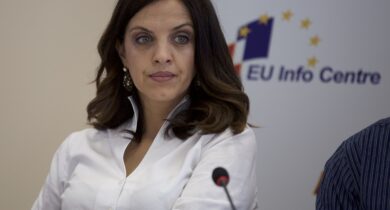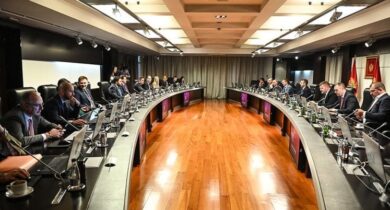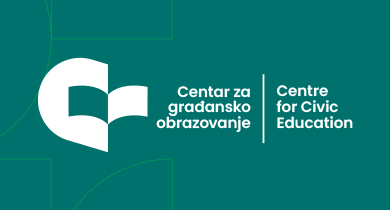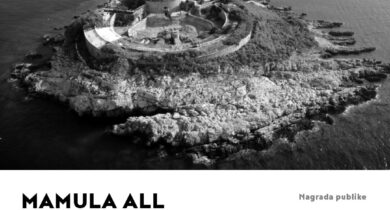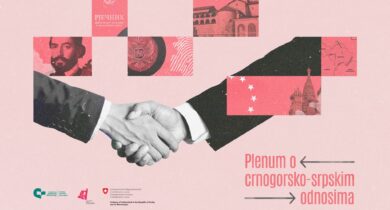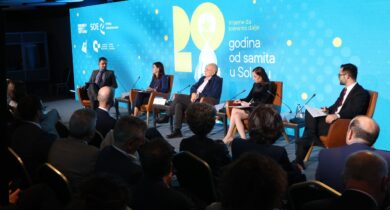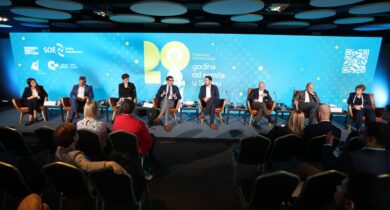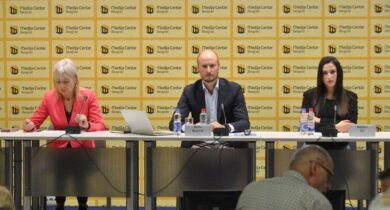Young people want to be involved in solving social issues, this is the central conclusion of the Youth Activism School for high school students from the central region of Montenegro, organized by the Centre for Civic Education (CCE) with the support of the United States Embassy in Podgorica through the Democracy Commission Small Grants Program.… »
Press releases 2023
Names of public education institutions must be legal and generally accepted
Centre for Civic Education (CCE) has submitted to the 44th Government and the Ministry of Education, Science and Innovation the Initiative to repeal the Decision on the establishment of the Public Preschool Institution “Mother Teresa” in Tuzi, specifically regarding the naming of the institution because it was assigned illegally, i.e. the procedures prescribed by the… »
Government sessions to be live-streamed again
Centre for Civic Education (CCE) submitted an initiative today to the Government, urging the reinstalment of live-streaming for Government sessions, considering that the suspension of these broadcasts is not a good decision, nor a good message for citizens, as it undoubtedly reduces the transparency of the Government’s work. It also complicates the ability of the… »
We understand that CCE/CGO bother and we will continue to do that
Centre for Civic Education (CGO) has purchased office space, as have many individuals, companies, NGOs, or other entities from Bemax, in accordance with the market conditions and procedures that apply when purchasing space from the company on credit and is repaid through credit. At the time of taking the loan, the owner of the premises,… »
Audience Award for the movie Mamula All Inclusive at the Free Zone Festival
The full-length documentary film Mamula All Inclusive, by Aleksandar Reljić, has received the Audience Award at the 19th edition of the Free Zone Film Festival in Serbia, where it had its premiere. The documentary Mamula All Inclusive was realized with the financial support of the Film Center of Serbia and produced by Greenfield Production in… »
Montenegro-Serbia relations complex, differences evident, and potential of crisis continues
Relations between Montenegro and Serbia are sensitive and complex, requiring a realistic approach with a full awareness of their historical underpinnings and the influence of current decision-makers. The context also includes apparent attempts to provoke a crisis by the authorities in Belgrade, as highlighted in yesterday’s Plenum on Montenegrin-Serbian relations, organized by the Centre for… »
EU enlargement has become a reality, candidate countries to protect themselves from malign influences
The enlargement of the European Union (EU) has become a reality, and the candidate countries need to strengthen institutions and the rule of law to protect themselves from external malign influences, said EU Ambassador in Montenegro, Oana Cristina Popa, at the panel “Western Balkans, International actors and the Geopolitics of the new era?” during the… »
Too many frameworks for integration and too little integration
A stable, European, and civic government in Montenegro can complete all the reforms from the process of accession to the European Union (EU) in four years, but it is questionable whether Montenegro will get such a government, said former Minister of European Affairs of Montenegro and member of the BIEPAG, Jovana Marović, during the panel… »
The countries of the Western Balkans are deservedly in the waiting room of the EU
The region, including Montenegro, 20 years after the summit in Thessaloniki, deservedly stands in the same waiting room, as there has not been concincing display of political will for reforms, as assessed by the Executive Director of the Centre for Civic Education (CCE) Daliborka Uljarević, at the conference “Time to Move on – 20 years… »
For the majority of citizens of Serbia, the issue of Montenegro’s independence is closed, with insufficient degree of recognition of Montenegrin identity and double standards for political changes
The question of Montenegro’s independence is considered closed by the dominant majority of citizens of Serbia, but it is clear that the narratives heard from the authorities keep this topic within a framework that is not conducive for the development of healthy neighbourly relations. This is indicated by responses related to the insufficient degree of… »


